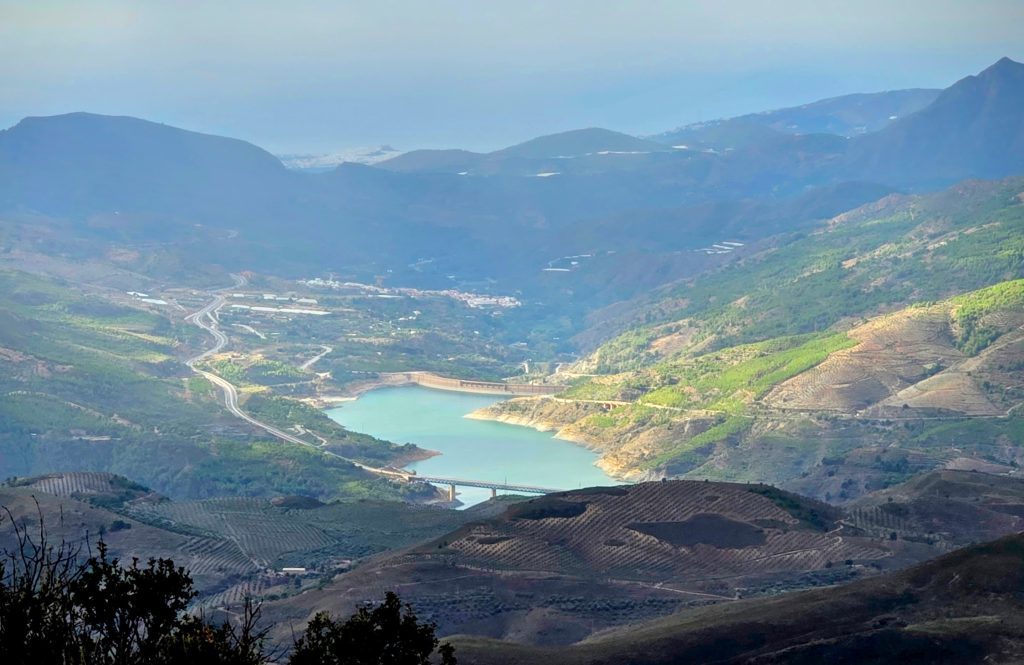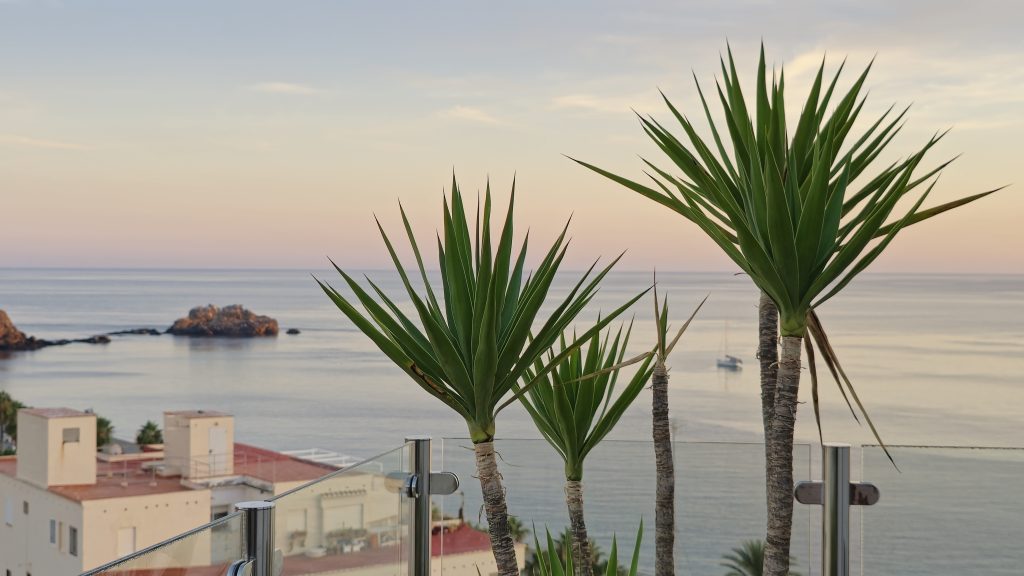Mathew Wood of Hola Properties – headquartered in Lanjarón – gives the latest lowdown on market trends. These include tourist license crackdowns, foreign buyer shifts, ‘okupa’ law changes, and a positive future for water access.
As we move further into 2025, the Costa Tropical and Granada property market report continues to evolve, shaped by new regulations, shifting buyer demographics, and long-awaited infrastructure investments. This month’s report brings important developments for current property owners and those thinking of buying or selling in southern Granada.

Tourist licences – biting back now!
One of the most pressing topics, recently, is the crackdown on tourist licences (‘viviendas turísticas’). After ‘mucho’ speculation, we’re now seeing real and widespread enforcement.
In Granada province alone, over 1,000 licences have been revoked. This follows similar actions that started in Málaga and continued with a freeze on new licences in Granada city.
From April 3, 2025, tourist licences can no longer be transferred when a property is sold. This is a significant shift in the rules – and a huge area of confusion, even for some legal professionals.
If you’re selling or buying a property with a tourist licence, it’s essential to get proper advice. Experts can help you avoid expensive mistakes. Don’t risk assuming that a licence will transfer with the property. In most cases, it won’t.
Foreign investment continues to rise – with some new entrants
Andalucia now accounts for around 20% of Spain’s total property transactions. Foreign investment continues to play a major role in this trend. The shift in who is buying definitely matters to sellers.
The Costa Tropical remains popular with Northern Europeans – Belgians, Dutch, Germans, and Scandinavians. The region is also seeing a notable rise in American and Eastern European buyers, particularly from Romania.
For sellers, this is more than just an interesting demographic trend. American buyers, in particular, are accustomed to highly regulated real estate systems. In Spain, where the property industry is still largely unregulated, these buyers are actively seeking agents who operate under a code of ethics and are registered professionals.
Many US clients state that they won’t buy through agents who aren’t accredited. They want assurance, transparency, and a totally trustworthy service.
Okupa law shift – small but important changes
For years, the word ‘Okupa’ (squatter) has struck fear into the hearts of Spanish homeowners – particularly those with second properties, or who want renters. Spain’s laws appeared to favour the squatters over the rightful owners. This left landlords unable to act, even when their homes were unlawfully occupied.
However, there’s a potentially significant shift in the tide. In Barcelona, the Provincial Court has ruled that property owners can now legally cut off services such as electricity and water in certain cases of illegal occupation. This is a marked change from previous rulings, where such actions were considered illegal – even if the occupants had broken into the property.
While this ruling currently only applies to Barcelona, it sets a legal precedent that could influence how courts in Andalusia and other autonomous communities interpret similar cases.
Luckily, the Costa Tropical isn’t an ‘okupa’ hotspot. However, property owners should stay informed of the situation and any law changes.
Water infrastructure boost – a long-awaited project progresses
Water is life and there’s exciting news for residents and property owners in the Costa Tropical. This is the approval of €80 million worth of funds to support new irrigation and residential water infrastructure.
This project, centered around the Rules Dam (‘Presa de Rules’), near Vélez de Benaudalla, has been in the pipeline (pardon the pun) for years. Thanks to recent rainfall, the dam has reached much healthier water levels compared to 2024. Now, permission is granted to start channelling the water to both agricultural and residential zones.
This will benefit a wide area, including Motril, Salobreña, and Almuñécar, It will ease pressure on water supplies as both local populations and visitor numbers grow. Although the works will take time, this marks positive a step forward for the region. It’s good for existing property owners and future developments alike.

Gazing into the crystal ball…
If you’re thinking of selling, it’s important to understand how these market changes affect your position:
- The tourist licence regulations could limit the number of properties available with existing licences. If your home qualifies, this could make it more attractive (but you must understand the new rules).
- Working with a reputable, registered agency is more important than ever – especially if your buyer is international.
- Infrastructure improvements like water access can add value to your property – especially in areas where utilities have historically been a concern.
For buyers, now is an excellent time to explore the Costa Tropical. Despite regulatory changes, demand remains strong, and the region continues to offer a unique blend of natural beauty, lifestyle, and investment potential.

Please see a video on these important topics here,

This article was produced in collaboration with Hola Properties. South of Granada retains editorial control over all published content.
